Related Research Articles
Clive Staples Lewis was a British writer, literary scholar, and Anglican lay theologian. He held academic positions in English literature at both Magdalen College, Oxford (1925–1954), and Magdalene College, Cambridge (1954–1963). He is best known as the author of The Chronicles of Narnia, but he is also noted for his other works of fiction, such as The Screwtape Letters and The Space Trilogy, and for his non-fiction Christian apologetics, including Mere Christianity, Miracles, and The Problem of Pain.

Herodotus was a Greek historian and geographer from the Greek city of Halicarnassus, part of the Persian Empire and a later citizen of Thurii in modern Calabria, Italy. He is known for having written the Histories – a detailed account of the Greco-Persian Wars. Herodotus was the first writer to perform systematic investigation of historical events. He has been described as "The Father of History", a title conferred on him by the ancient Roman orator Cicero.
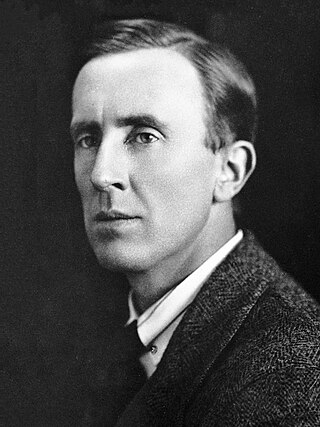
John Ronald Reuel Tolkien was an English writer and philologist. He was the author of the high fantasy works The Hobbit and The Lord of the Rings.
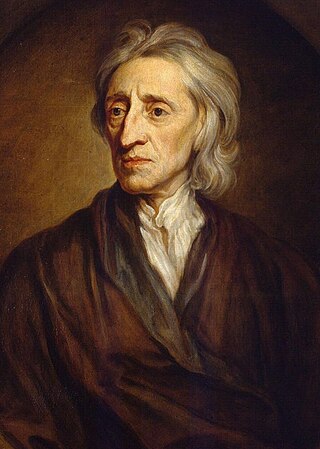
John Locke was an English philosopher and physician, widely regarded as one of the most influential of Enlightenment thinkers and commonly known as the "father of liberalism". Considered one of the first of the British empiricists, following the tradition of Francis Bacon, Locke is equally important to social contract theory. His work greatly affected the development of epistemology and political philosophy. His writings influenced Voltaire and Jean-Jacques Rousseau, and many Scottish Enlightenment thinkers, as well as the American Revolutionaries. His contributions to classical republicanism and liberal theory are reflected in the United States Declaration of Independence. Internationally, Locke's political-legal principles continue to have a profound influence on the theory and practice of limited representative government and the protection of basic rights and freedoms under the rule of law.
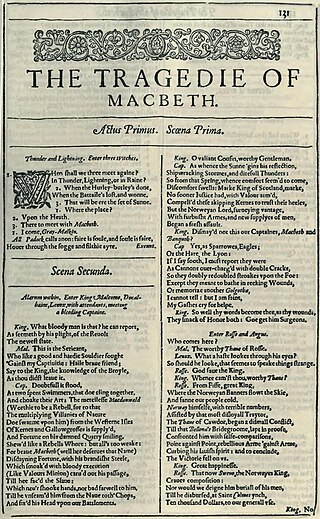
The Tragedy of Macbeth, often shortened to Macbeth, is a tragedy by William Shakespeare. It is thought to have been first performed in 1606. It dramatises the damaging physical and psychological effects of political ambition on those who seek power. Of all the plays that Shakespeare wrote during the reign of James I, Macbeth most clearly reflects his relationship with King James, patron of Shakespeare's acting company. It was first published in the Folio of 1623, possibly from a prompt book, and is Shakespeare's shortest tragedy.

The Oxford English Dictionary (OED) is the principal historical dictionary of the English language, published by Oxford University Press (OUP), a University of Oxford publishing house. The dictionary, which published its first edition in 1884, traces the historical development of the English language, providing a comprehensive resource to scholars and academic researchers, and provides ongoing descriptions of English language usage in its variations around the world.

Plato, born Aristocles, was an ancient Greek philosopher of the Classical period who is considered a foundational thinker in Western philosophy and an innovator of the written dialogue and dialectic forms. He raised problems for what became all the major areas of both theoretical philosophy and practical philosophy, and was the founder of the Platonic Academy, a philosophical school in Athens where Plato taught the doctrines that would later become known as Platonism.
Plutarch was a Greek Middle Platonist philosopher, historian, biographer, essayist, and priest at the Temple of Apollo in Delphi. He is known primarily for his Parallel Lives, a series of biographies of illustrious Greeks and Romans, and Moralia, a collection of essays and speeches. Upon becoming a Roman citizen, he was possibly named Lucius Mestrius Plutarchus.
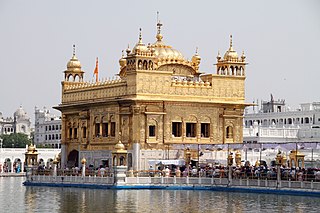
Sikhism, also known as Sikhi, is an Indian religion and philosophy that originated in the Punjab region of the Indian subcontinent around the end of the 15th century CE. It is one of the most recently founded major religions and among the largest in the world with about 25–30 million adherents.
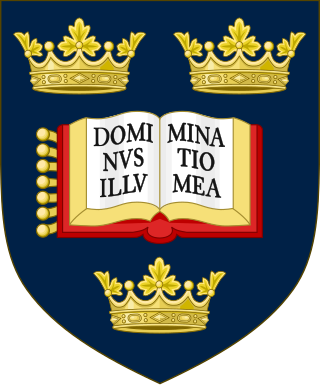
The University of Oxford is a collegiate research university in Oxford, England. There is evidence of teaching as early as 1096, making it the oldest university in the English-speaking world and the world's second-oldest university in continuous operation. It grew rapidly from 1167, when Henry II banned English students from attending the University of Paris. After disputes between students and Oxford townsfolk, some Oxford academics fled northeast to Cambridge, where, in 1209, they established the University of Cambridge. The two English ancient universities share many common features and are jointly referred to as Oxbridge.

William Shakespeare was an English playwright, poet and actor. He is widely regarded as the greatest writer in the English language and the world's pre-eminent dramatist. He is often called England's national poet and the "Bard of Avon". His extant works, including collaborations, consist of some 39 plays, 154 sonnets, three long narrative poems and a few other verses, some of uncertain authorship. His plays have been translated into every major living language and are performed more often than those of any other playwright. Shakespeare remains arguably the most influential writer in the English language, and his works continue to be studied and reinterpreted.

Edward the Confessor was an Anglo-Saxon English king and saint. Usually considered the last king of the House of Wessex, he ruled from 1042 until his death in 1066.
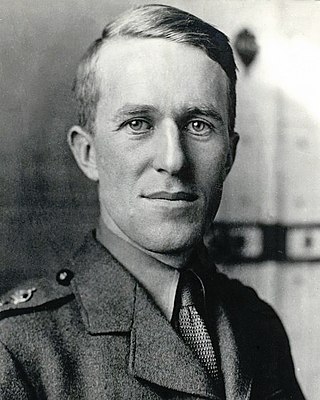
Thomas Edward Lawrence was a British Army officer, archaeologist, diplomat and writer known for his role during the Arab Revolt and Sinai and Palestine campaign against the Ottoman Empire in the First World War. The breadth and variety of his activities and associations, and Lawrence's ability to describe them vividly in writing, earned him international fame as Lawrence of Arabia, a title used for the 1962 film based on his wartime activities.
Oxford University Press (OUP) is the publishing house of the University of Oxford. It is the largest university press in the world. Its first book was printed in Oxford in 1478, with the Press officially granted the legal right to print books by decree in 1586. It is the second oldest university press after Cambridge University Press, which was founded in 1534.
Kalki, also called Kalkin, is the prophesied tenth and final incarnation of the Hindu god Vishnu. According to Vaishnava cosmology, Kalki is destined to appear at the end of the Kali Yuga, the last of the four ages in the cycle of existence (Krita). His arrival will mark the end of the Kali Yuga and herald the beginning of the Satya Yuga, the most virtuous age, before the ultimate dissolution of the universe (Mahapralaya).

The Boat Race is an annual set of rowing races between the Cambridge University Boat Club and the Oxford University Boat Club, traditionally rowed between open-weight eights on the River Thames in London, England. It is also known as the University Boat Race and the Oxford and Cambridge Boat Race.

Guru Gobind Singh was the tenth and last human Sikh Guru. He was a warrior, poet, and philosopher. In 1675, at the age of nine he was formally installed as the leader of the Sikhs after his father Guru Tegh Bahadur was executed by Emperor Aurangzeb. His father was the ninth Sikh Guru. His four biological sons died during his lifetime – two in battle and two executed by the Mughal governor Wazir Khan.

Abdul Qadir Gilani was a Hanbali scholar, preacher, and Sufi leader who was the eponym of the Qadiriyya, one of the oldest Sufi orders.

Islam is an Abrahamic monotheistic religion centered on the Quran and the teachings of Muhammad, the religion's founder. Adherents of Islam are called Muslims, who are estimated to number approximately 1.9 billion worldwide and are the world's second-largest religious population after Christians.
References
- ↑ "Annals of the Reformation and Establishment of Religion" Strype, J. p. 38: Oxford; Clarendon; 1824
- ↑ 1104–1131 Alumni Oxonienses 1500–1714, Pace-Payton [ permanent dead link ]
- ↑ Horn, Joyce M. (1992), Fasti Ecclesiae Anglicanae 1541–1857, vol. 7, pp. 13–14